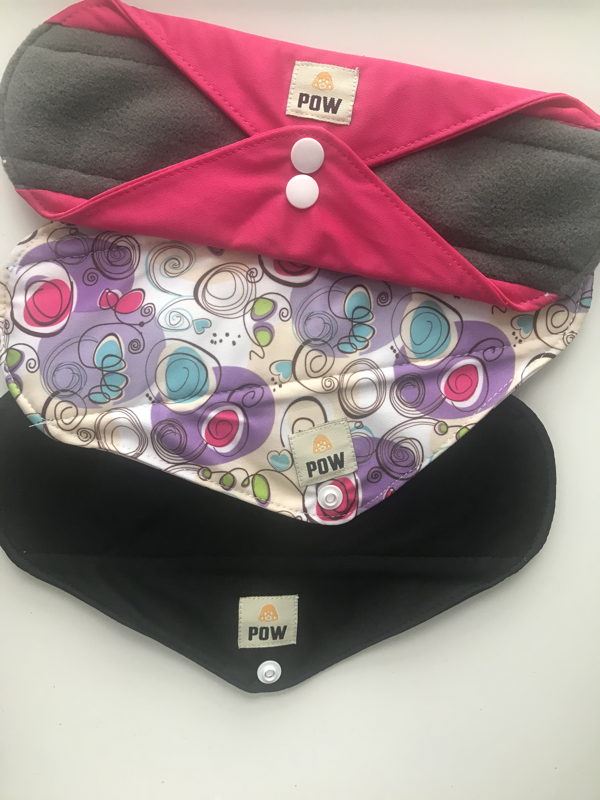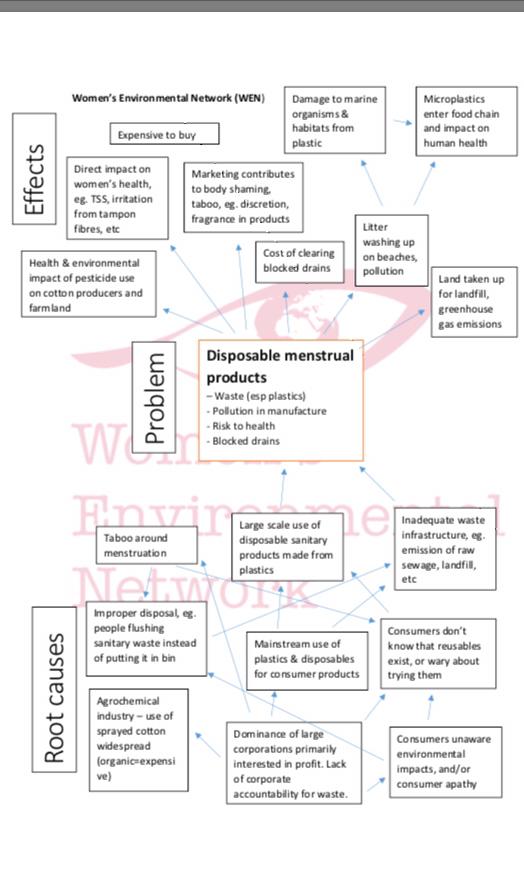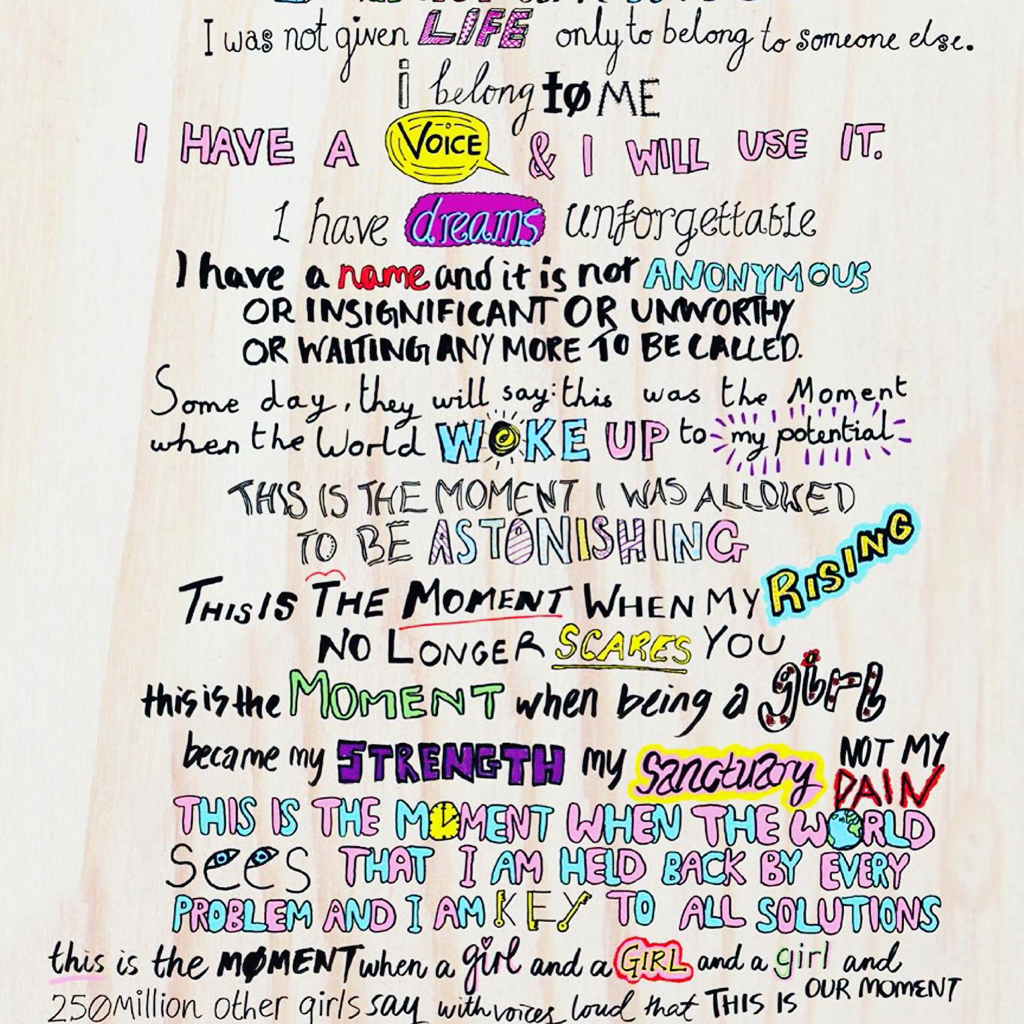|
ow.ly/sGW630mqhZ6
Ever wondered how to wash and look after your cloth pads. Here’s an article shared by EcoFemme.
0 Comments
The amazing women at WEN have provided a template you can send to any manufacturer of menstrual pads. Copy it, paste it, fill in the blanks and get some answers.
Disclosure of ingredients is not required, many brands contain bleach and other toxic chemicals - You deserve to know, don’t you? Dear ____________, With growing consumer concern about the impact of single-use plastics I would like to ask what ___(insert name of the company)______ is doing to reduce the plastic used in your menstrual products? Single-use plastic has detrimental environmental and health impacts. I am sure you are aware that women in the UK use an average of 11,000 disposable menstrual products in their lifetime, which generates more than 200,000 tonnes of waste per year. Theseproducts all contain plastic, which ends up in landfill taking centuries to decompose or can enter our waterways polluting our rivers, seas and beaches. Companies such as Natracare have addressed this issue by offering plastic-free and organic cotton menstrual products, which demonstrates that the production of more environmentally friendly menstrual products is possible. Recent independent product-testing results carried out by Women’s Voices for the Earth revealed undisclosed toxic chemicals in many brands of tampons. I would like to know what’s in my menstrual products. Disclosure of ingredients is standard for food and cosmetics so why not for menstrual products? What plans do you have regarding this? Conventional bleaching of tampons and pads can produce dioxin, which is a known toxic chemical and endocrine disruptor. If you are currently using this bleaching method what steps are you taking to switch to a Totally Chlorine Free (TCF) bleaching process? The TCF process is safer for our bodies and for the environment. I would like to be able to buy reusable menstrual products such as menstrual cups, washable pads and period underwear, as well as organic cotton and plastic-free disposable products, from your supermarket. What plans do you have to stock these products? Please could you let me know how (insert name of company) is addressing these issues? Dear ____________, With growing consumer concern about the impact of single-use plastics I would like to ask what ___(insert name of the company)______ is doing to reduce the plastic used in your menstrual products? Single-use plastic has detrimental environmental and health impacts. I am sure you are aware that women in the UK use an average of 11,000 disposable menstrual products in their lifetime, which generates more than 200,000 tonnes of waste per year. Theseproducts all contain plastic, which ends up in landfill taking centuries to decompose or can enter our waterways polluting our rivers, seas and beaches. Companies such as Natracare have addressed this issue by offering plastic-free and organic cotton menstrual products, which demonstrates that the production of more environmentally friendly menstrual products is possible. Recent independent product-testing results carried out by Women’s Voices for the Earth revealed undisclosed toxic chemicals in many brands of tampons. I would like to know what’s in my menstrual products. Disclosure of ingredients is standard for food and cosmetics so why not for menstrual products? What plans do you have regarding this? Conventional bleaching of tampons and pads can produce dioxin, which is a known toxic chemical and endocrine disruptor. If you are currently using this bleaching method what steps are you taking to switch to a Totally Chlorine Free (TCF) bleaching process? The TCF process is safer for our bodies and for the environment. I would like to be able to buy reusable menstrual products such as menstrual cups, washable pads and period underwear, as well as organic cotton and plastic-free disposable products, from your supermarket. What plans do you have to stock these products? Please could you let me know how (insert name of company) is addressing these issues? I look forward to your response. bit.ly/2NSOcgE
Join us in supporting the first Environmenstual Week of Action #EWOA. It’s time to start asking questions and demanding answers. What's the issue? Health - Many conventional disposable menstrual products are bleached white, and this process creates the chemical dioxin, a known endocrine disruptor. Many women have reported adverse allergic reactions to the synthetic ingredients, fragrances and plastics in disposable menstrual products. Just as in cosmetics, fragrances can be comprised of allergens, sensitisers and phthalates (a class of chemicals that has been linked to hormone disruption), which can affect development and fertility. Flushing and disposal - The Marine Conservation Society found that around half of UK women flush tampons away. That means 1.5-2 billion menstrual items are flushed down Britain’s toilets each year, causing massive sewage and waterway issues such as the Whitechapel Fatberg. Plastic - In the UK, the average menstruator uses over 11,000 disposable menstrual products in a lifetime. Tampons, pads and panty liners along with their packaging generate more than 200,000 tonnes of waste per year, and they all contain plastic - in fact, pads are around 90% plastic! The average user throws away an astonishing 125 to 150kg of tampons, pads and applicators in their lifetime. Plastic waste ends up in landfill or, even worse, in seas, rivers and beaches. Taboo or period shaming - has a massive impact on the products we use and how we dispose of them. With the result that they can affect our health, end up in landfills or on our beaching. Changing social and cultural attitudes towards menstruation could have a major impact on our health and the environment. Period poverty - A study by Plan International UK, from a survey of 1000 14 - 21 yr olds, found that 10% of girls could not afford menstrual products. The study also found that 12% of girls had to improvise menstrual wear due to #PeriodAction affordability issues and 14% had to ask to borrow menstrual products from a friend. (Credits to Women’s Environment Network 2018) #plasticfreeperiods Since 2012 today, October 11th has marked International Day of the Girl. Aimed to highlight the daily challenges faced by girls across the globe.
This is my moment. Yes. This is the moment. |
AuthorWrite something about yourself. No need to be fancy, just an overview. Archives
January 2019
Categories
All
|



 RSS Feed
RSS Feed
